-
 Bitcoin
Bitcoin $87,772.6996
0.99% -
 Ethereum
Ethereum $1,570.5330
-2.49% -
 Tether USDt
Tether USDt $1.0000
0.01% -
 XRP
XRP $2.0836
-1.10% -
 BNB
BNB $599.1765
0.07% -
 Solana
Solana $138.0201
-2.11% -
 USDC
USDC $0.9999
0.01% -
 Dogecoin
Dogecoin $0.1599
0.63% -
 TRON
TRON $0.2467
0.31% -
 Cardano
Cardano $0.6233
-1.67% -
 Chainlink
Chainlink $13.1154
-2.78% -
 UNUS SED LEO
UNUS SED LEO $9.1017
-1.66% -
 Avalanche
Avalanche $19.7493
-1.09% -
 Stellar
Stellar $0.2496
0.02% -
 Toncoin
Toncoin $2.9084
-3.65% -
 Shiba Inu
Shiba Inu $0.0...01230
-2.09% -
 Sui
Sui $2.2248
2.27% -
 Hedera
Hedera $0.1694
-0.70% -
 Bitcoin Cash
Bitcoin Cash $342.3982
0.49% -
 Hyperliquid
Hyperliquid $18.1794
-0.12% -
 Litecoin
Litecoin $78.6773
-0.19% -
 Polkadot
Polkadot $3.7586
-4.30% -
 Dai
Dai $0.9998
-0.02% -
 Bitget Token
Bitget Token $4.4381
-1.01% -
 Ethena USDe
Ethena USDe $0.9992
0.01% -
 Pi
Pi $0.6309
-1.94% -
 Monero
Monero $214.9808
-0.07% -
 Uniswap
Uniswap $5.2523
-2.33% -
 Pepe
Pepe $0.0...07838
1.42% -
 OKB
OKB $50.7171
-0.70%
How to choose a crypto wallet?
Crypto wallet selection depends on the specific cryptocurrencies you need to store, your desired level of security, and the accessibility and usability that align with your preferences.
Oct 04, 2024 at 08:12 am
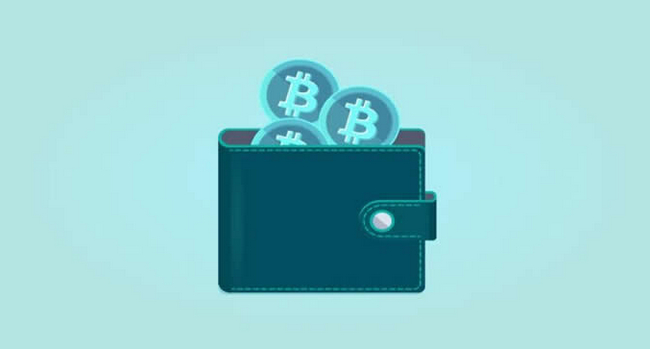
How to Choose a Crypto Wallet
Cryptocurrency wallets are essential for storing, sending, and receiving digital assets. With the growing popularity of cryptocurrencies, choosing the right wallet can be crucial for ensuring the security and accessibility of your funds. Here's a step-by-step guide to help you select the best crypto wallet:
1. Determine Your Needs:
- Type of coins: Identify the specific cryptocurrencies you need to store. Some wallets only support certain coins.
- Security features: Consider your desired level of security, such as multi-signature support, hardware protection, or offline storage.
- Accessibility: Decide how you want to access your wallet, such as through a mobile app, web browser, or desktop software.
2. Research Different Wallet Types:
Hot wallets: These wallets are connected to the internet, providing easy and convenient access to your funds. However, they may be more susceptible to security breaches. Examples include:
- Binance (App)
- Coinbase Wallet (App, Web)
Cold wallets: These wallets are not connected to the internet, offering greater security against online attacks. However, they require a physical device for storage. Examples include:
- Trezor (Hardware)
- Ledger (Hardware)
3. Evaluate Security Features:
- Encryption: Look for wallets that use strong encryption algorithms to protect your private keys.
- Two-factor authentication (2FA): Prefer wallets that require multiple forms of verification to prevent unauthorized access.
- Multi-signature support: Consider wallets that allow multiple people to authorize transactions, providing enhanced security.
4. Check Customer Support and Reputation:
- Read reviews and testimonials from other users to assess the quality of customer support offered by the wallet provider.
- Research the reputation of the wallet developer, ensuring they have a strong track record and are committed to security.
5. Consider Usability:
- User interface: Choose a wallet with an intuitive and user-friendly interface, making it easy to navigate and manage your funds.
- Cross-platform compatibility: If you use multiple devices, opt for a wallet that supports your preferred platforms.
6. Set Up and Secure Your Wallet:
- Once you have selected a wallet, create an account and secure it by following the provider's instructions.
- Back up your recovery phrase and store it offline in a safe place.
- Disable unused security features to reduce the risk of vulnerabilities.
7. Monitor and Maintain:
- Regularly review your transactions and monitor your balance to identify any suspicious activity.
- Keep your wallet software up to date with the latest security patches.
- Consider transferring your funds to a more secure wallet if you notice any potential security breaches.
Disclaimer:info@kdj.com
The information provided is not trading advice. kdj.com does not assume any responsibility for any investments made based on the information provided in this article. Cryptocurrencies are highly volatile and it is highly recommended that you invest with caution after thorough research!
If you believe that the content used on this website infringes your copyright, please contact us immediately (info@kdj.com) and we will delete it promptly.
- Meteora Labs sued by investors over alleged M3M3 token price manipulation
- 2025-04-22 09:40:12
- This is a published version of our weekly Forbes Crypto Confidential newsletter. Sign up here to get Crypto Confidential days earlier free in your inbox.
- 2025-04-22 09:40:12
- Trump Token Unlocks Are When a Group of People—Usually Project Team Members, Early Investors or Advisors—Receive Their Allocated Tokens
- 2025-04-22 09:35:14
- Meme cryptocurrency Dogecoin is currently trading at an important support level against Bitcoin
- 2025-04-22 09:35:14
- Dogecoin (DOGE) Price Broke Out of Two Technical Patterns, Setting the Stage for a Bullish Run
- 2025-04-22 09:30:12
- Mutuum Finance (MUTM) Presale Raises Over $7M From 8400+ Buyers
- 2025-04-22 09:30:12
Related knowledge
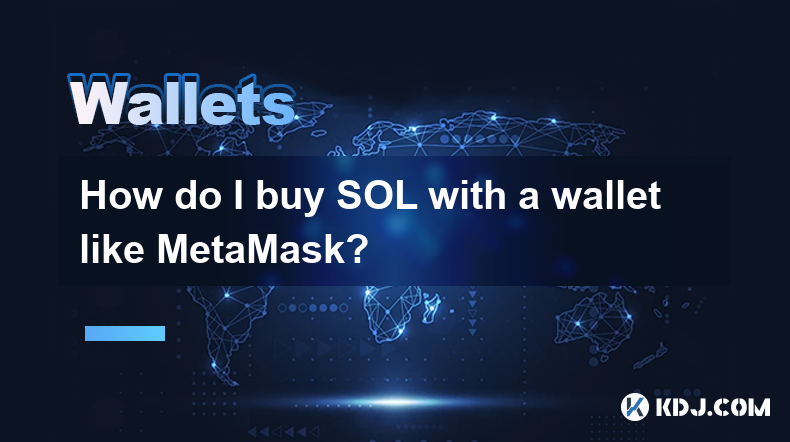
How do I buy SOL with a wallet like MetaMask?
Apr 20,2025 at 01:35pm
How do I Buy SOL with a Wallet Like MetaMask? Purchasing Solana (SOL) using a wallet like MetaMask involves a few steps, as MetaMask primarily supports Ethereum and Ethereum-based tokens. However, with the help of decentralized exchanges (DEXs) and some intermediary steps, you can acquire SOL. This article will guide you through the process in detail. S...
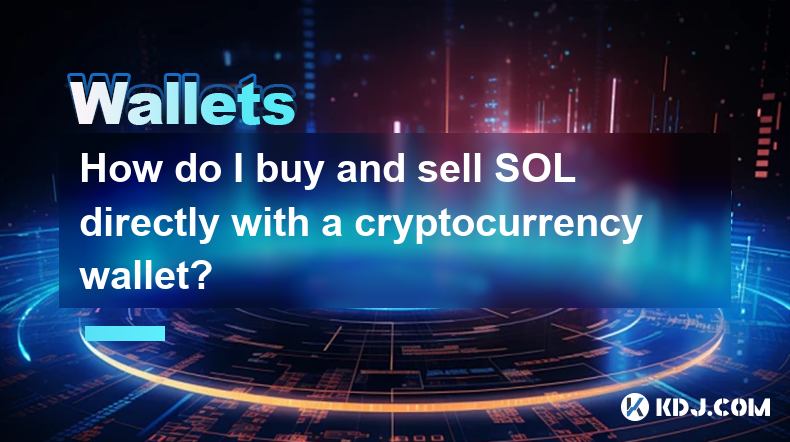
How do I buy and sell SOL directly with a cryptocurrency wallet?
Apr 19,2025 at 05:35pm
Introduction to Buying and Selling SOL with a Cryptocurrency WalletBuying and selling Solana (SOL) directly from a cryptocurrency wallet offers a convenient and secure way to manage your digital assets. Cryptocurrency wallets are essential tools for anyone looking to interact with the Solana blockchain. They allow you to store, send, and receive SOL wit...
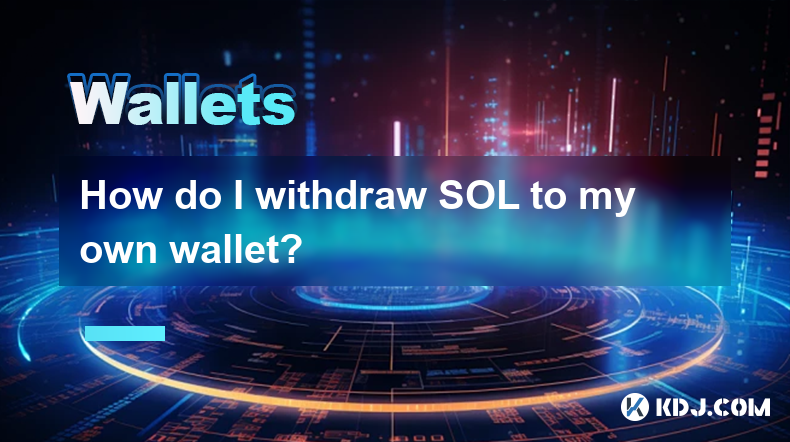
How do I withdraw SOL to my own wallet?
Apr 20,2025 at 04:21pm
Introduction to Withdrawing SOL to Your Own WalletWithdrawing Solana (SOL) to your own wallet is a straightforward process, but it requires careful attention to detail to ensure that your funds are transferred safely and efficiently. SOL is the native cryptocurrency of the Solana blockchain, known for its high throughput and low transaction fees. Whethe...
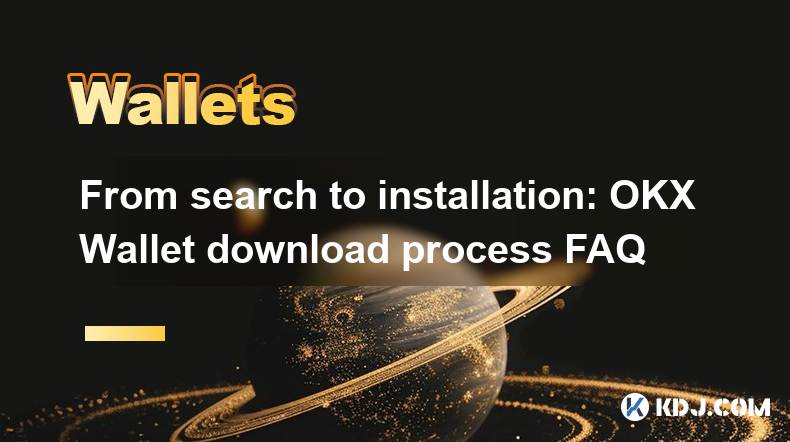
From search to installation: OKX Wallet download process FAQ
Apr 17,2025 at 02:00pm
The OKX Wallet is a popular choice among cryptocurrency enthusiasts for managing their digital assets securely and efficiently. Understanding the process from searching for the wallet to its installation can be crucial for new users. This article will guide you through the entire process, providing detailed steps and answers to frequently asked question...
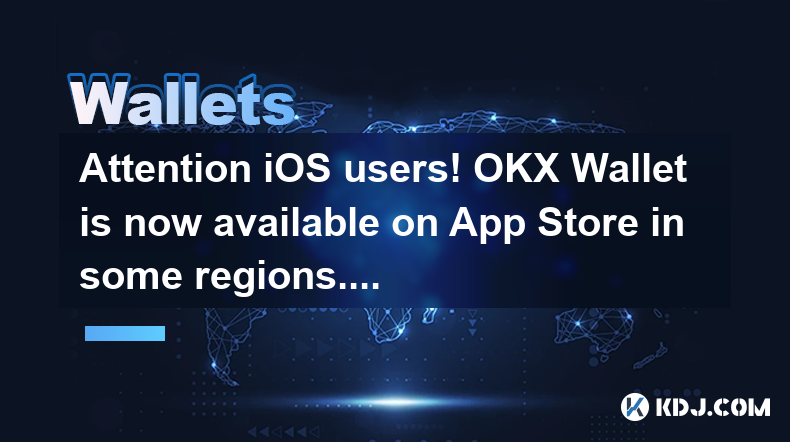
Attention iOS users! OKX Wallet is now available on App Store in some regions. How to check its availability?
Apr 20,2025 at 05:21pm
Attention iOS users! OKX Wallet is now available on App Store in some regions. If you're eager to check its availability and start using this versatile cryptocurrency wallet, follow our detailed guide. We'll walk you through the steps to confirm if OKX Wallet is accessible in your region, and provide insights into its features and benefits. Checking OKX...
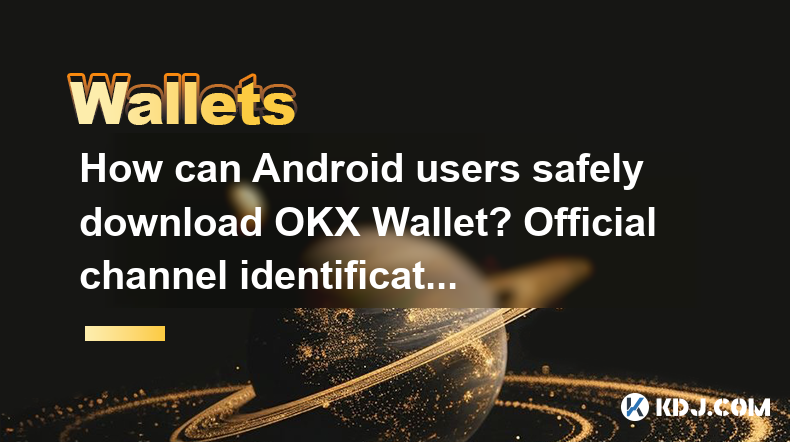
How can Android users safely download OKX Wallet? Official channel identification guide
Apr 19,2025 at 10:50pm
How can Android users safely download OKX Wallet? Official channel identification guide Ensuring the safety and security of your cryptocurrency assets begins with downloading apps from trusted sources. For Android users interested in using OKX Wallet, it's crucial to identify and use the official channels to avoid downloading malicious software. This gu...

How do I buy SOL with a wallet like MetaMask?
Apr 20,2025 at 01:35pm
How do I Buy SOL with a Wallet Like MetaMask? Purchasing Solana (SOL) using a wallet like MetaMask involves a few steps, as MetaMask primarily supports Ethereum and Ethereum-based tokens. However, with the help of decentralized exchanges (DEXs) and some intermediary steps, you can acquire SOL. This article will guide you through the process in detail. S...

How do I buy and sell SOL directly with a cryptocurrency wallet?
Apr 19,2025 at 05:35pm
Introduction to Buying and Selling SOL with a Cryptocurrency WalletBuying and selling Solana (SOL) directly from a cryptocurrency wallet offers a convenient and secure way to manage your digital assets. Cryptocurrency wallets are essential tools for anyone looking to interact with the Solana blockchain. They allow you to store, send, and receive SOL wit...

How do I withdraw SOL to my own wallet?
Apr 20,2025 at 04:21pm
Introduction to Withdrawing SOL to Your Own WalletWithdrawing Solana (SOL) to your own wallet is a straightforward process, but it requires careful attention to detail to ensure that your funds are transferred safely and efficiently. SOL is the native cryptocurrency of the Solana blockchain, known for its high throughput and low transaction fees. Whethe...

From search to installation: OKX Wallet download process FAQ
Apr 17,2025 at 02:00pm
The OKX Wallet is a popular choice among cryptocurrency enthusiasts for managing their digital assets securely and efficiently. Understanding the process from searching for the wallet to its installation can be crucial for new users. This article will guide you through the entire process, providing detailed steps and answers to frequently asked question...

Attention iOS users! OKX Wallet is now available on App Store in some regions. How to check its availability?
Apr 20,2025 at 05:21pm
Attention iOS users! OKX Wallet is now available on App Store in some regions. If you're eager to check its availability and start using this versatile cryptocurrency wallet, follow our detailed guide. We'll walk you through the steps to confirm if OKX Wallet is accessible in your region, and provide insights into its features and benefits. Checking OKX...

How can Android users safely download OKX Wallet? Official channel identification guide
Apr 19,2025 at 10:50pm
How can Android users safely download OKX Wallet? Official channel identification guide Ensuring the safety and security of your cryptocurrency assets begins with downloading apps from trusted sources. For Android users interested in using OKX Wallet, it's crucial to identify and use the official channels to avoid downloading malicious software. This gu...
See all articles






















































































